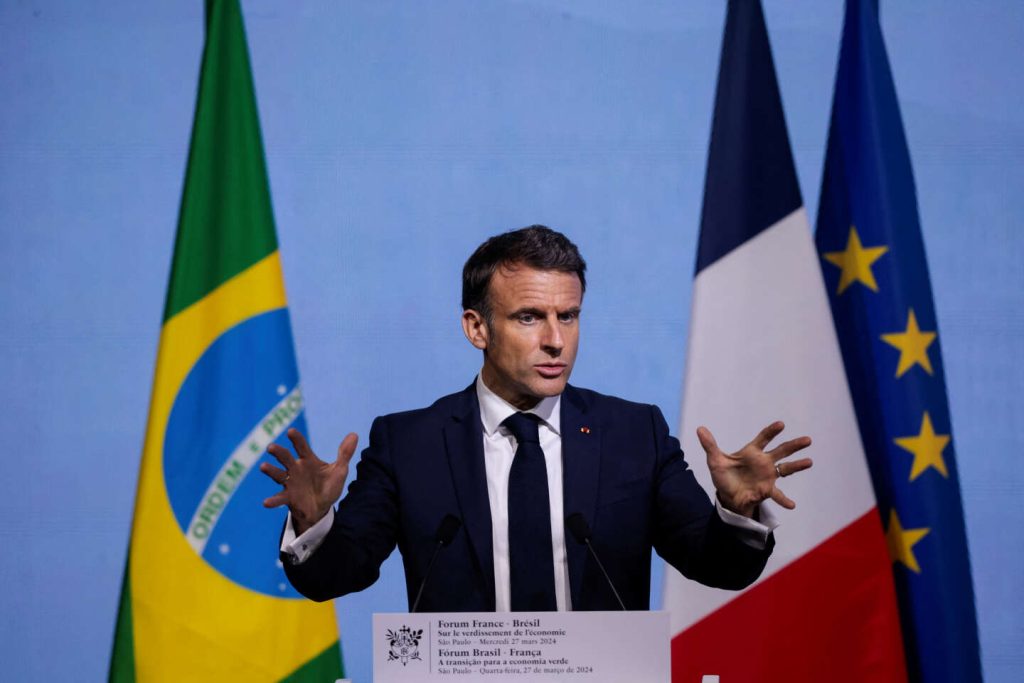French President Emmanuel Macron spoke at the Brazil-France Economic Forum in Sao Paulo on March 27, 2024. During his speech, Macron criticized the trade agreement negotiated between the European Union and the South American Mercosur bloc, calling it a “very bad agreement” and advocating for the creation of a new one. He emphasized that the current EU-Mercosur agreement does not address issues related to biodiversity and climate, making it unsatisfactory for both parties involved.
Macron expressed his desire for a new agreement that takes into account environmental concerns for both the EU and Mercosur, which includes Brazil, Argentina, Uruguay, Paraguay, and Bolivia. He called for a shift away from the old Mercosur agreement and towards a new one that prioritizes development, climate, and biodiversity. This new agreement would include provisions to facilitate market access for European companies while also being more demanding on both sides for farmers and industries.
The French president has been vocal in his opposition to the current trade agreement, which he believes does not align with European rules. The negotiations for this treaty, which began in 1999, aim to eliminate most tariffs between the two regions, creating a market of over 700 million consumers. Despite a political agreement in 2019, its final adoption has been blocked by countries like France due to concerns over the impact on European agriculture. Other EU countries like Germany and Spain have advocated for its implementation, while Brazil, a key player in Mercosur, continues to push for the agreement’s adoption.
Macron’s remarks in Brazil reflect a broader debate within the EU about the future of trade relations with Mercosur. While some member states see the agreement as beneficial for boosting economic growth and market access, others are concerned about the potential negative impact on domestic industries, particularly agriculture. Macron’s call for a new agreement that addresses environmental issues reflects growing public awareness and concern about climate change and biodiversity loss.
The French president’s stance on the EU-Mercosur agreement also highlights the complexities of international trade negotiations and the need to balance economic interests with social and environmental considerations. Macron’s proposal for a “new generation” agreement with strict environmental provisions demonstrates a commitment to promoting sustainability and responsible trade practices. The ongoing discussions surrounding this trade deal underscore the challenges of reaching consensus among diverse stakeholders with varying interests and priorities.
In conclusion, Emmanuel Macron’s comments in Brazil underscore the importance of reevaluating and potentially renegotiating trade agreements to align with evolving environmental and social priorities. By calling for a new agreement that prioritizes climate, biodiversity, and sustainable development, Macron is advocating for a more balanced and equitable approach to international trade. The debate surrounding the EU-Mercosur agreement reflects broader tensions within the global trade system and the need for a more inclusive and environmentally conscious approach to economic cooperation.














